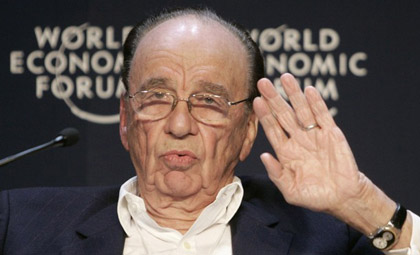Sky News is reporting that Richard Desmond has discussed selling the Express to the Daily Mail and General Trust.
Writing on the Sky’s blog, City editor Mark Kleinman claims talks have taken place between the chairman of Northern and Shell and Lord Rothermere, chairman of DMGT.
The two men are now said to get on reasonably well, and I understand both believe that a deal could be in their interests. A merger of the titles would create a newspaper powerhouse commanding weekday sales of more than 3m copies, according to the ABCs (which measure newspaper circulation) for February.
It’s not clear what DMGT would plan to do with the Express if it did buy it. I’m told that it has considered launching a red-top tabloid to compete with the Sun at various points during the last decade, a consideration that would be fulfilled if it acquired the Daily Star and its Sunday sister title, which Desmond also owns.
Kleinman’s blog is not the first to report on the potential sale of the Express. Last month the Evening Standard mentioned a possible offloading of the title when reporting Desmond’s readiness to sell three magazines, including OK!
Roy Greenslade ponders what form a DGMT Express could take.
To reduce national press ownership would be a mighty step at a time when there are increasing concerns about pluralism and diversity of voice.
Of course, the nature of the merger need not result in the disappearance of the Express title. I guess it would be possible for DMGT to publish both papers.
Given their current similarity, there would be no point in producing the Express in its current form. Perhaps it could be transformed into a cheap Mail (on the lines of The Independent‘s kid sister, i).
Then again, maybe Desmond and Rothermere are just having a laugh. I say again: are they really being serious?
